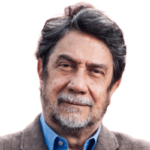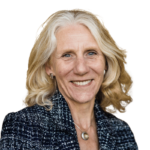Programme
Please note that content and timings are still subject to change.
Sunday, 25 May
Pre-opening
- 19:00–
- 21:00
- Film Museum
- Film screening
- 19:00–
- 21:00
- Film Museum
- Film screening
Eno: An ever-changing portrait of a musical visionary
Eno: An ever-changing portrait of a musical visionary. The Austrian premiere of the groundbreaking documentary about Brian Eno by Gary Hustwit, screened at the Film Museum Vienna.
Read more ...Monday, 26 May
AI and society
- 09:00–
- 10:30
- Arena21
- Opening Ceremony
- 09:00–
- 10:30
- Arena21
- Opening Ceremony
Shaping our digital future
Hosted by:
Claudia Zettel
Editor-in-Chief of Futurezone
- Peter Hanke, Federal Minister of Innovation, Mobility, and Infrastructure of Austria
- Michael Ludwig, Governor and Mayor of Vienna
- Michael Häupl, Former Governor and Mayor of Vienna (1994–2018), President of Vienna Science and Technology Fund (WWTF)
- Veronica Kaup-Hasler, Executive City Councillor for Cultural Affairs and Science, City of Vienna
- Hannes Werthner, Former Dean of Informatics at TU Wien, emeritus professor, initiator of Digital Humanism, conference programme committee member
- Erich Prem, RTI Strategy Advisor and CEO of eutema GmbH, #DigHum2025 Conference chair
- 10:30–
- 11:00
- Coffee
- 10:30–
- 11:00
- Coffee
Coffee
- 11:00–
- 12:30
- Arena21
- Keynotes
- 11:00–
- 12:30
- Arena21
- Keynotes
AI and democracy
Hosted by:
Claudia Zettel
Editor-in-Chief of Futurezone
Lawrence Lessig
Roy L. Furman Professor of Law and Leadership at Harvard Law School
Moshe Y. Vardi
University Professor and the George Distinguished Service Professor in Computational Engineering at Rice University
- 12:30–
- 14:00
- Lunch
- 14:00–
- 15:30
- Arena21
- Panel
- 14:00–
- 15:30
- Arena21
- Panel
AI meets society
Hosted by:
Sabine T. Köszegi
Professor of Labour Science and Organisation at the Institute of Management Sciences at TU Wien
Ricardo Baeza-Yates
Full Professor at Universitat Pompeu Fabra
Katja Bühler
Scientific Director, Head of Biomedical Image Informatics Group at VRVis
Toby Walsh
Laureate Fellow and Scientia Professor of Artificial Intelligence in the School of Computer Science and Engineering at UNSW Sydney
- 14:00–
- 15:30
- Oval hall
- Exhibition & Lightning Talks
- 14:00–
- 15:30
- Oval hall
- Exhibition & Lightning Talks
10 DigHum projects in action
Hosted by:
Petra Steinkogler
Programme Manager at the Vienna Science and Technology Fund (WWTF)
In this session, project teams from the Digital Humanism calls by the Vienna Science and Technology Fund will share insights into “Digital Humanism research”. How can we better understand the social and human dimensions of digitalisation and align it more closely with human values? What challenges arise in interdisciplinary work, and do such collaborations lead to unexpected outcomes? Join us for a series of lightning talks and meet the researchers shaping our digital future.
This panel is co-organised with the Vienna Science and Technology Fund.
- Lisette Espín-Noboa, Complexity Science Hub
- Jan Maly, WU Wien
- Agata Ciabattoni, TU Wien
- Matthias Zeppelzauer, St. Pölten University of Applied Sciences
- Hossein Kermani, University of Vienna
- Margarete Jahrmann, University of Applied Arts Vienna
- Regina Schuster, University of Vienna
- Laura Koesten, MBZUAI and University of Vienna
- Pia Pachinger, TU Wien
- Anna Maria Planitzer, University of Vienna
- Peter Knees, TU Wien
- Eugenia Stamboliev, University of Vienna
Read more ...
- 14:00–
- 15:30
- Suite A
- Workshop
- 14:00–
- 15:30
- Suite A
- Workshop
AI and eco-social regeneration
Hosted by:
Christoph Thun-Hohenstein
Cultural Manager, Curator, and Author, former Director General for International Cultural Relations at the Austrian Foreign Ministry
Mark Coeckelbergh
Professor of Philosophy of Media and Technology at University of Vienna
Johann Dorn
Data scientist at GeoSphere Austria, Founder of OnipaBooks, Member of Masakhane
Martine Jarlgaard
Impact Innovator, Venture Builder, and Technology Pioneer
Veronika Liebl
Managing Director at Ars Electronica
Sarah Spiekermann-Hoff
Head of the Institute for Information Systems & Society at Vienna University of Economics and Business (WU Vienna)
Marlies Wirth
Curator for Digital Culture and Head of the Design Collection at the MAK – Museum of Applied Arts
The session discusses the potential for how AI can contribute to eco-social regeneration. It does this against the background of the Global Risks Report 2025, published at the World Economic Forum, which lists the four most severe global risks from a 10-year perspective as extreme weather events, biodiversity loss and ecosystem collapse, critical change to Earth systems, and natural resource shortages.
The session focuses on the special potential of generative AI, with particular attention to DeepSeek and comparable new Chinese open-source large language models whose code is freely available for use and modification. The aim of the session is to discuss approaches on how key points of Digital Humanism can be consistently intertwined with the requirements of genAI-supported eco-social regeneration (“Regenerative Digital Humanism”). Particular attention should be paid to opportunities and risks for the EU and Europe.
- 15:30–
- 16:00
- Coffee
- 16:00–
- 17:30
- Arena21
- Panel
- 16:00–
- 17:30
- Arena21
- Panel
AI’s technical trajectory
Hosted by:
Carles Sierra
Research Professor of the Artificial Intelligence Research Institute (IIIA-CSIC)
Michael Bronstein
Scientific Director AI of AITHYRA Institute of the Austrian Academy of Sciences
Edward A. Lee
Professor of the Graduate School in EECS
Ute Schmid
Full Professor of Cognitive Systems at the University of Bamberg, Director of the Bamberg Center of AI (BaCAI), Member of bidt's Board of Directors and bidt's Executive Commitee
- 16:00–
- 17:30
- Suite A
- Panel
- 16:00–
- 17:30
- Suite A
- Panel
Artistic Intelligence and AI
Hosted by:
Paul Feigelfeld
Professor for Digitality and Cultural Mediation at Mozarteum University
Bettina Kames
CEO and co-founder of LAS Art Foundation
Claudia Larcher
Artist, Filmmaker, and AI researcher
Martina Menegon
Artist, Researcher, Curator, Educator
Klaus Speidel
Philosopher, Curator and Art Critic
The session will discuss future-oriented interfaces between artistic and artificial intelligence. New Chinese open-source large language models such as DeepSeek are opening up a new AI race between China and the USA and increasing the pressure on tech companies to make decisive progress towards artificial superintelligence (ASI) in the foreseeable future. For artists, DeepSeek and similar Chinese offerings offer the advantage over US models that they allow their code to be freely available for use and modification. Against this background, the session will, on the one hand, discuss how artistic approaches can help to grasp the full scope of current and foreseeable AI developments and to analyse which specific socio-political measures appear urgently necessary from the perspective of Digital Humanism and what the EU and Europe can do about it. On the other hand, the session will highlight the inspirational potential of these technological leaps for the future development of the arts.
- 17:30–
- 18:00
- Coffee
- 19:00–
- 21:00
- Reception
- 19:00–
- 21:00
- Reception
Digital Humanism platform reception
Hosted by:
Erich Prem
Chief RTI Strategy Advisor and CEO of eutema GmbH
Michael Wiesmüller
Head of Department for Key Enabling Technologies for Industrial Innovation
Thomas Haigh
Professor and Chair of the history department at the University of Wisconsin-Milwaukee
Live music by The Juke Swing Band.
Tuesday, 27 May
Platforms and power
- 09:00–
- 10:30
- Arena21
- Keynotes
- 09:00–
- 10:30
- Arena21
- Keynotes
AI power: Global perspectives
Dame Wendy Hall
Regius Professor of Computer Science, Associate Vice President and is Director of the Web Science Institute at the University of Southampton
Christiane Wendehorst
President of the Division of Humanities and Social Sciences of the Austrian Academy of Sciences and Professor of Civil Law at the University of Vienna
- 10:30–
- 11:00
- Coffee
- 11:00–
- 12:30
- Arena21
- Panel
- 11:00–
- 12:30
- Arena21
- Panel
Platforms as new institutions
Hosted by:
Michael Stampfer
Managing Director of the Vienna Science and Technology Fund (WWTF)
Virgilio Almeida
Professor Emeritus of Computer Science at the Federal University of Minas Gerais (UFMG)
Annabelle Gawer
Professor in Digital Economy & Director, Centre of Digital Economy (CoDE), Surrey Business School, University of Surrey
Ben Snaith
Senior Researcher at the Open Data Institute (ODI)
Philipp Staab
Professor of Sociology at Humboldt University in Berlin and Co-Director at the Einstein Center Digital Future
- 11:00–
- 12:30
- Suite A
- Panel
- 11:00–
- 12:30
- Suite A
- Panel
Governance architectures for our digital future
Hosted by:
David Passarelli
Director of UN University’s Center for Policy Research
Julia Black
Warden of Nuffield College, Oxford and President of the British Academy
Daria Gritsenko
Associate Professor in Digital Social Science at the Center for Social Data Science at the University of Helsinki
Julia Morse
Assistant Professor at the University of California, Santa Barbara
Amid a challenging geopolitical landscape and increasingly strained international cooperation, there is value in revisiting past governance models as we consider how to shape a digital governance architecture fit for the future. This panel will examine the practice of institutional mimicry, which entails borrowing and adapting governance models from one sector to address cooperation challenges in other sectors.
The international community has shown remarkable ingenuity in developing a wide range of innovative cooperation models. These models have secured broad stakeholder buy-in and fostered equity through inclusive participation in agenda-setting and decision-making. Along the way they have addressed core governance challenges such as fostering accountability, promoting transparency, and building multi-stakeholder coalitions to establish and enforce shared rules. As such, past models of cooperation can serve as templates and potential roadmaps for unlocking future collaboration, drawing on established practices that were often the product of hard-fought compromise in other contexts.
This panel will examine the promise and limitations of institutional mimicry. It will explore how governance innovations from specific sectors—particularly financial regulation and environmental governance—might inform the governance of emerging technologies.
- 12:30–
- 14:00
- Lunch
- 14:00–
- 15:30
- Arena21
- Panel
- 14:00–
- 15:30
- Arena21
- Panel
Governing AI
Hosted by:
George Metakides
Digital Enlightenment Forum
Dame Wendy Hall
Regius Professor of Computer Science, Associate Vice President and is Director of the Web Science Institute at the University of Southampton
Paula Hidalgo-Sanchis
UNU Global AI Network Coordinator
Marc Rotenberg
President and Founder of the Center for AI and Digital Policy
Anja Wyrobek
Legal Policy Adviser at the European Parliament, Office of MEP Birgit Sippel
- 14:00–
- 15:30
- Oval hall
- Panel
- 14:00–
- 15:30
- Oval hall
- Panel
Public service media and AI
Hosted by:
Klaus Unterberger
Head of the “Public Value Department” at the Austrian Broadcasting Corporation (ORF)
Madiana Asseraf
Head of Corporate Development & Strategic Initiatives with the European Broadcasting Union
Stefan Kollinger
Chief Innovation Officer at the Austrian Broadcasting Corporation (ORF)
Matthias Pfeffer
Founding Director at the Council for European Public Space
Counteract. Cooperate. Create.
AI is crucial. For many reasons. For everyone.
However, the public sphere of our society depends on trusted information and reliable sources. Despite the enormous rise of social media, traditional media, particularly Public Service Media, still are relevant gate keepers for all of us.
How can they handle the disruptions of digital transformation? Will media be able to counteract the flood of fake news, hate speech and propaganda, the spread of filter bubbles, the misuse of personal data? How can they keep pace with digital technology? And most importantly: How are they using AI in a distinctive way to support democracy and citizenship?
In this session, international experts will discuss the role and relevance as well as the contributions of European Public Service Media creating AI for the common good.
- 14:00–
- 15:30
- Suite A
- Panel
- 14:00–
- 15:30
- Suite A
- Panel
Accountable AI: How to protect human rights?
Hosted by:
Irina Nalis
Psychologist and postdoctoral researcher at the Christian Doppler Laboratory for Recommender Systems at TU Wien and the JKU Linz
Peter Knees
Associate Professor at the Faculty of Informatics at TU Wien
Sabine T. Köszegi
Professor of Labour Science and Organisation at the Institute of Management Sciences at TU Wien
Noah Oder
AI Policy Expert at the OECD
Sandra Wachter
Professor of Technology and Regulation at the University of Oxford
- 15:30–
- 16:00
- Coffee
- 16:00–
- 17:30
- Arena21
- Panel
- 16:00–
- 17:30
- Arena21
- Panel
Cybersecurity in new times
Hosted by:
Misha Glenny
Rector of the Institute for Human Sciences (IWM)
Martina Lindorfer
Associate Professor at TU Wien and key researcher at SBA Research
Matteo Maffei
Key researcher at SBA Research and Professor at TU Wien
Rafal Rohozinski
Founder of SecDev Group and CEO of Zeropoint Security
- 16:00–
- 17:30
- Oval hall
- Workshop
- 16:00–
- 17:30
- Oval hall
- Workshop
Social media and AI: What’s on the research agenda?
Hosted by:
Julia Neidhardt
Head of the Christian Doppler Lab for Recommender Systems and UNESCO Co-Chair on Digital Humanism at TU Wien
Fariba Karimi
Full Professor of Social Data Science at the Faculty of Computer Science and Biomedical Engineering at TU Graz
Brigitte Krenn
Deputy Director of the Austrian Research Institute for Artificial Intelligence (OFAI)
Sophie Lecheler
Professor of Political Communication at the University of Vienna
- 16:00–
- 17:30
- Suite A
- Panel
- 16:00–
- 17:30
- Suite A
- Panel
DigHum networks in academia
Hosted by:
Peter Ertl
Vice Rector for research, innovation, international affairs at TU Wien
Laura Koesten
Assistant Professor at Mohamed bin Zayed University of Artificial Intelligence (MBZUAI)
Ronald Maier
Vice-Rector for Digitalisation and Knowledge Transfer at the University of Vienna
Klaus Staudacher
Researcher at the Bavarian Research Institute for Digital Transformation (bidt)
- 18:30–
- 20:00
- Suite A
- Student workshop
- 18:30–
- 20:00
- Suite A
- Student workshop
From ideas to impact: Connecting expertise and practice in Digital Humanism
Hosted by:
Astrid Mager
Senior Academy Scientist at the Institute of Technology Assessment (ITA) of the Austrian Academy of Sciences (ÖAW)
Katja Mayer
Senior Scientist at the Centre for Social Innovation ZSI
Wednesday, 28 May
Disruptive innovation
- 09:00–
- 10:30
- Arena21
- Keynotes
- 09:00–
- 10:30
- Arena21
- Keynotes
Innovation in the AI age
Hosted by:
Eugenia Stamboliev
Postdoc researcher at the University of Vienna and visiting professor at the Brandenburg University of Technology (BTU)
Michael A. Cusumano
Sloan Management Review Distinguished Professor of Management (former Deputy Dean)
Bashar Nuseibeh
Professor of Computing at The Open University
- 10:30–
- 11:00
- Coffee
- 10:30–
- 11:00
- Coffee
Coffee
- 11:00–
- 12:30
- Arena21
- Panel
- 11:00–
- 12:30
- Arena21
- Panel
Reimagining AI through social innovation
Hosted by:
Katja Mayer
Senior Scientist at the Centre for Social Innovation ZSI
Reema Patel
Co-founder of the Ada Lovelace Institute
Mirko Tobias Schäfer
Co-founder and the Sciences Lead of the Data School at Utrecht University
Gabriella Waters
Co-founder of CIVITAAS, Director of the Cognitive & Neurodiversity AI (CoNA) Lab at Morgan State University
Social innovation fosters new ideas, practices, and collaborations to address societal challenges and enhance collective well-being. In AI, this goes beyond developing technologies—it also involves shaping processes, institutions, and ethical and legal frameworks. This session explores how AI can both support and benefit from social innovation across four angles: public interest AI, participation and openness, sustainability and evaluation. This panel is co-organised with the Center for Social Innovation ZSI Vienna.
- 11:00–
- 12:30
- Suite A
- Panel
- 11:00–
- 12:30
- Suite A
- Panel
Funding a digital future worth living
Hosted by:
Martin Giesswein
WU Executive Academy and DigitalCity.Wien
Fridolin Herkommer
Head of the Office for Digital Affairs at the Chamber of Labour in Vienna
Günter Klambauer
Professor at the Institute for Machine Learning at JKU Linz
Marie Ringler
Leadership Group Member and Regional Director for Central and Eastern Europe at Ashoka
Michael Stampfer
Managing Director of the Vienna Science and Technology Fund (WWTF)
Karin Tausz
Managing Director of the Austrian Research Promotion Agency (FFG)
- 12:30–
- 14:00
- Lunch
- 12:30–
- 14:00
- Lunch
Lunch
- 14:00–
- 15:30
- Arena21
- Panel
- 14:00–
- 15:30
- Arena21
- Panel
From social media to AI: Lessons learned
Hosted by:
Noshir Contractor
Jane S. & William J. White Professor of Behavioral Sciences at Northwestern University
Chris Bail
Professor of Sociology and Public Policy at Duke University
Sunimal Mendis
Assistant Professor in Intellectual Property Law at the Tilburg Institute for Law, Technology, and Society (TILT) of the Tilburg University
Max Schrems
Lawyer, Author and Speaker, Founder of NOYB
- 14:00–
- 15:30
- Suite A
- Workshop
- 14:00–
- 15:30
- Suite A
- Workshop
The EU Digital Humanism Initiative (EUDHIT)
Hosted by:
Erich Prem
Chief RTI Strategy Advisor and CEO of eutema GmbH
Ivonne Herrera
Senior Scientist at NTNU Social Research
Carlos Montalvo
Senior Research Scientist at the TNO VECTOR Centre for Societal Innovation and Strategy
Clara Neppel
Senior Director at IEEE
- 15:30–
- 16:00
- Coffee
- 15:30–
- 16:00
- Coffee
Coffee
- 16:00–
- 17:30
- Arena21
- Panel
- 16:00–
- 17:30
- Arena21
- Panel
Implementing Digital Humanism in practice
Hosted by:
Georg Krause
CEO of msg Plaut
Gabriele Bolek-Fügl
Vice president of Women in AI Austria
Martin Giesswein
WU Executive Academy and DigitalCity.Wien
Clara Neppel
Senior Director at IEEE
Natalia Postek
Expert for people with disabilities and inclusion in the Dachverband Wiener Sozialeinrichtungen
Join for an engaging panel discussion on the practical implementation of Digital Humanism. The distinguished guests are the winners of the “Digital Humanism in Practice” award, presented in January 2025. The discussion will feature three categories of awardees: individuals who have made significant contributions to the implementation of Digital Humanism, projects that have excellently embodied its principles, and organisations that have made a noteworthy contribution to its realisation. Don’t miss this opportunity to learn from leading experts in the field!
- 16:00–
- 17:30
- Oval hall
- Panel
- 16:00–
- 17:30
- Oval hall
- Panel
Teaching Digital Humanism
Hosted by:
Gerti Kappel
Full Professor at the Institute of Information Systems Engineering and Dean of the Faculty of Informatics at TU Wien
Anna Bon
Researcher and Lecturer in Digital Transformation and Global Development at Vrije Universiteit Amsterdam
Marta Sabou
Professor for Information Systems and Business Engineering at the Vienna University of Economics and Business (WU Vienna)
Alexander Schmölz
Professor of Digital Humanism at the University of Applied Sciences BFI Vienna and Managing Director of the Austrian Institute for Vocational Training Research
Dorothea Winter
Research Associate & Advisor to the Rector at the University of the Humanist Association Berlin-Brandenburg
- 16:00–
- 17:30
- Suite A
- Workshop
- 16:00–
- 17:30
- Suite A
- Workshop
AI and democracy: From values to action
Hosted by:
Astrid Mager
Senior Academy Scientist at the Institute of Technology Assessment (ITA) of the Austrian Academy of Sciences (ÖAW)
Teki Akuetteh
Founder and Executive Director of the Africa Digital Rights Hub LBG
Siddhi Gupta
Inclusive AI Lab and Assistant Professor, Creative Education at Srishti Manipal Institute of Art, Design and Technology
Sebastian Kneidinger
Policy Advisor at epicenter.works
Michael Veale
Associate Professor in digital rights and regulation at the Faculty of Laws, University College London
In times of political polarisation and increasing global competition, this workshop explores how to embed democratic principles in AI development. Through brief inputs and interactive discussions, participants will identify strategies for equitable data infrastructures, participatory governance, and community-led AI—turning values into action for a more inclusive and accountable AI ecosystem.

The workshop is co-organised with the Commission Democracies in Digital Societies of the Austrian Academy of Sciences ÖAW.
- 18:00–
- 19:00
- Oval hall
- Closing summary
- 18:00–
- 19:00
- Oval hall
- Closing summary
Summary session
Hosted by:
Klemens Himpele
CIO of the City of Vienna
Erich Prem
Chief RTI Strategy Advisor and CEO of eutema GmbH
- 19:00–
- 21:00
- Arena21
- Evening Event
- 19:00–
- 21:00
- Arena21
- Evening Event
Digital Humanism industry evening
Speakers
Want to know more about our keynote speakers and panelists? View the full speaker profiles.
Speakers
Want to know more about our keynote speakers and panelists? View the full speaker profiles.





























































































